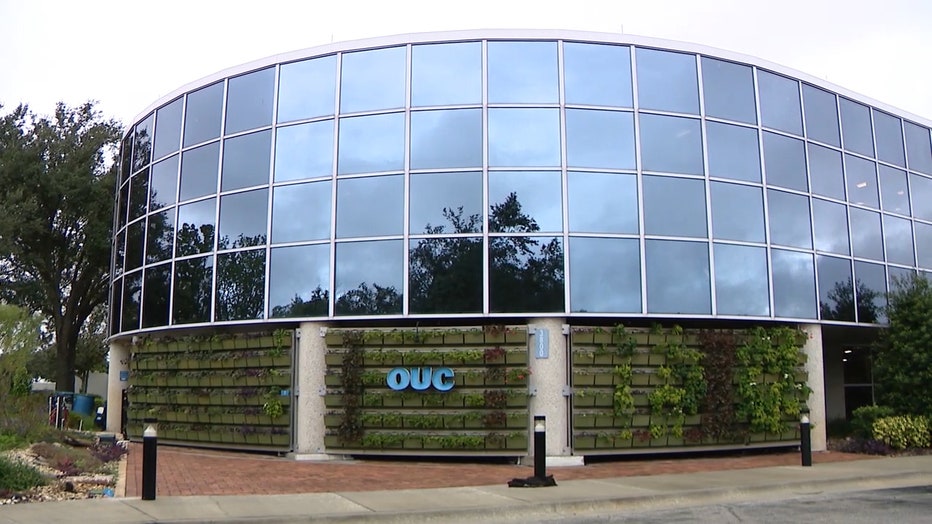OUC to convert solar power into hydrogen for storing

OUC to convert solar power into hydrogen for storing
New technology is making solar panels more efficient, even on cloudy days. Orlando Utilities Commission is going to double solar power over the next year and will be one of the first utility companies in the country to convert that power to hydrogen.
ORLANDO, Fla. - The Orlando Utilities Commission (OUC) is doubling its solar power over the next year but the issue with solar energy is the sun isn’t always beaming down. The panels are useless in cloudy conditions and at night.
“What we want to do is make sure we’re providing that reliable resource and through solar fluctuations, that can cause some problems, and if we get ahead of them, that means we provide a nice, clean, reliable power for the customer,” said Justin Kramer, Supervisor of Emerging Technologies with Orlando Utilities Commission.
So, OUC is turning to water. The utility company will be one of the first to covert the electricity into hydrogen.
“Hydrogen is a storage technology, it’s similar to a battery, we can actually take excess electricity from the solar array and store it into hydrogen,” said Kramer.
Here’s how it works: the solar panels create the electricity from the sun, the energy is converted into hydrogen, the hydrogen burned when needed, that energy used as electricity. Right now, solar electricity has to be used right away.
“It’s truly emerging technologies,” said Kramer. “It basically provides us the ability to use solar, when it’s not always fully available.”

This technology being tested in Orlando could pave the way for OUC and other utilities around the country to transition completely to solar.
“It allows us to use more and more renewable resources, so we transition and continue our transition to these sustainable resources that are out there,” said Kramer.
Orlando residents we spoke to support investment into solar technology.
“Sustainability is definitely something we should we working towards,” said Diana Galbraith, Orlando resident. “It’s important to help the environment and invest in solar energy.
“Technology is amazing nowadays, and it’s gonna get better and better, so I’m sure that would be quite efficient,” said Katie Murphy, Orlando resident.
OUC plans to have the new system online sometime in 2021. The $9-million-project is partially being funded by the United States Department of Energy.

